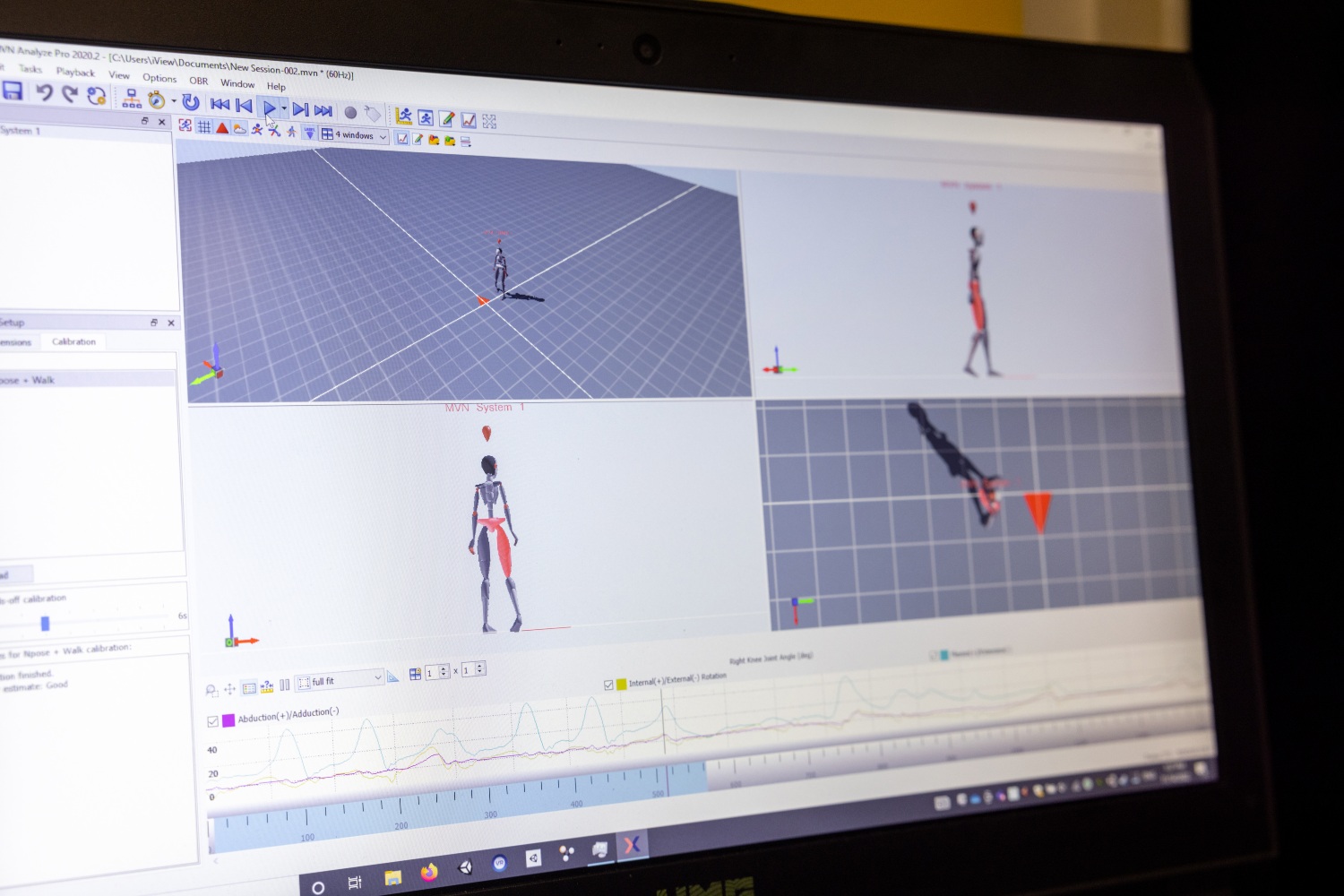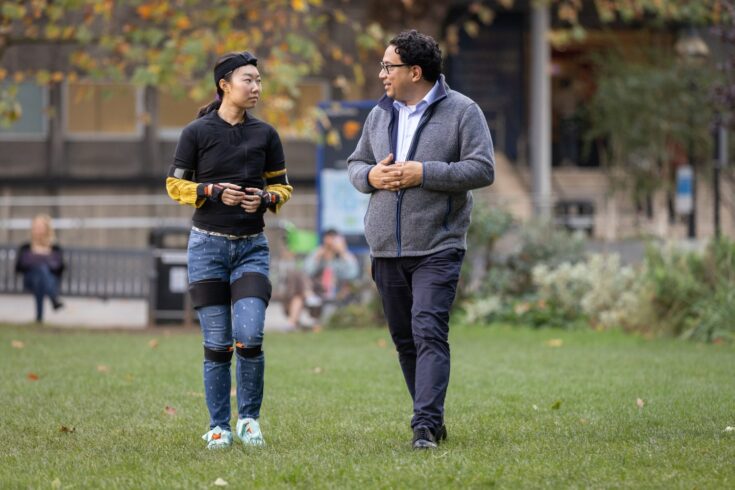A new wearable artificial intelligence (AI) technology could help to monitor the progression of movement disorders.
In two studies, published in Nature Medicine, researchers demonstrate the potential of this new approach to increase the efficiency of clinical trials in Duchenne muscular dystrophy and Friedreich’s ataxia.
The team are combining human movement data gathered from wearable tech, similar to the motion capture approach used in films, with AI to:
- identify clear movement patterns
- predict future disease progression
Diagnosing disease
They hope that it could also one day be used to monitor or diagnose a range of common diseases that affect movement behaviour such as:
- dementia
- stroke
- orthopaedic conditions
The research was funded by UK Research and Innovation (UKRI) through:
- a Turing AI Fellowship
- UKRI Centre for Doctoral Training (CDT) in AI for Healthcare
- Medical Research Council London Institute of Medical Sciences (MRC LMS)
The UKRI CDT in AI for Healthcare and AI Turing Fellowships are delivered for UKRI by the Engineering and Physical Sciences Research Council (EPSRC).
Unprecedented, precise predictions
Senior and corresponding author of both papers, UKRI Turing AI Fellow Professor Aldo Faisal from Imperial College London, said:
Our approach gathers huge amounts of data from a person’s full-body movement, more than any neurologist will have the precision or time to observe in a patient.
Our AI technology builds a digital twin of the patient and allows us to make unprecedented, precise predictions of how an individual patient’s disease will progress.
We believe that the same AI technology working in two very different diseases, shows how promising it is to be applied to many diseases and help us to develop treatments for many more diseases even faster, cheaper and more precisely.
Improving diagnosis and monitoring
Co-author of both studies Professor Richard Festenstein, from the MRC LMS and Department of Brain Sciences at Imperial said:
Patients and families often want to know how their disease is progressing, and motion capture technology combined with AI could help to provide this information.
We’re hoping that this research has the potential to transform clinical trials in rare movement disorders, as well as improve diagnosis and monitoring for patients above human performance levels.

Credit: Imperial College London
Partners in the research also include:
- UCL Great Ormond Street Institute for Global Health
- National Institute for Health and Care Research (NIHR) Great Ormond Street Hospital Biomedical Research Centre
- Ataxia Centre at UCL Queen Square Institute of Neurology
- Great Ormond Street Hospital
- National Hospital for Neurology and Neurosurgery
- University of Bayreuth
- Gemelli Hospital in Rome
- NIHR Imperial College Biomedical Research Centre
Find out more about the wearable AI technology on the Imperial College London website.
Read more about the motion capture technology project on BBC News.
Top image: Credit: Imperial College London

